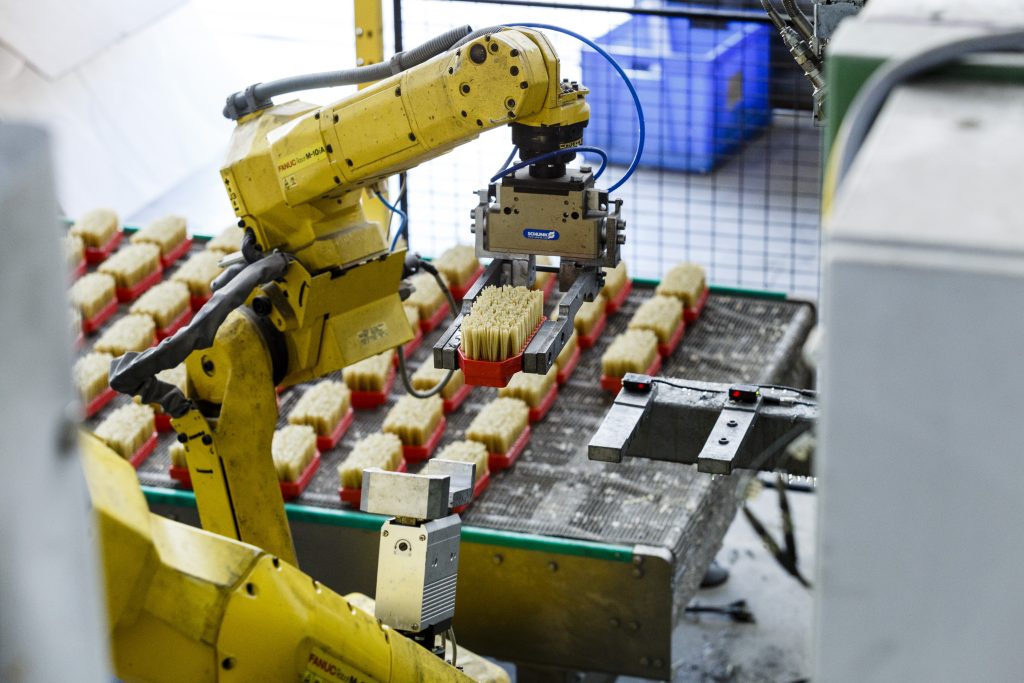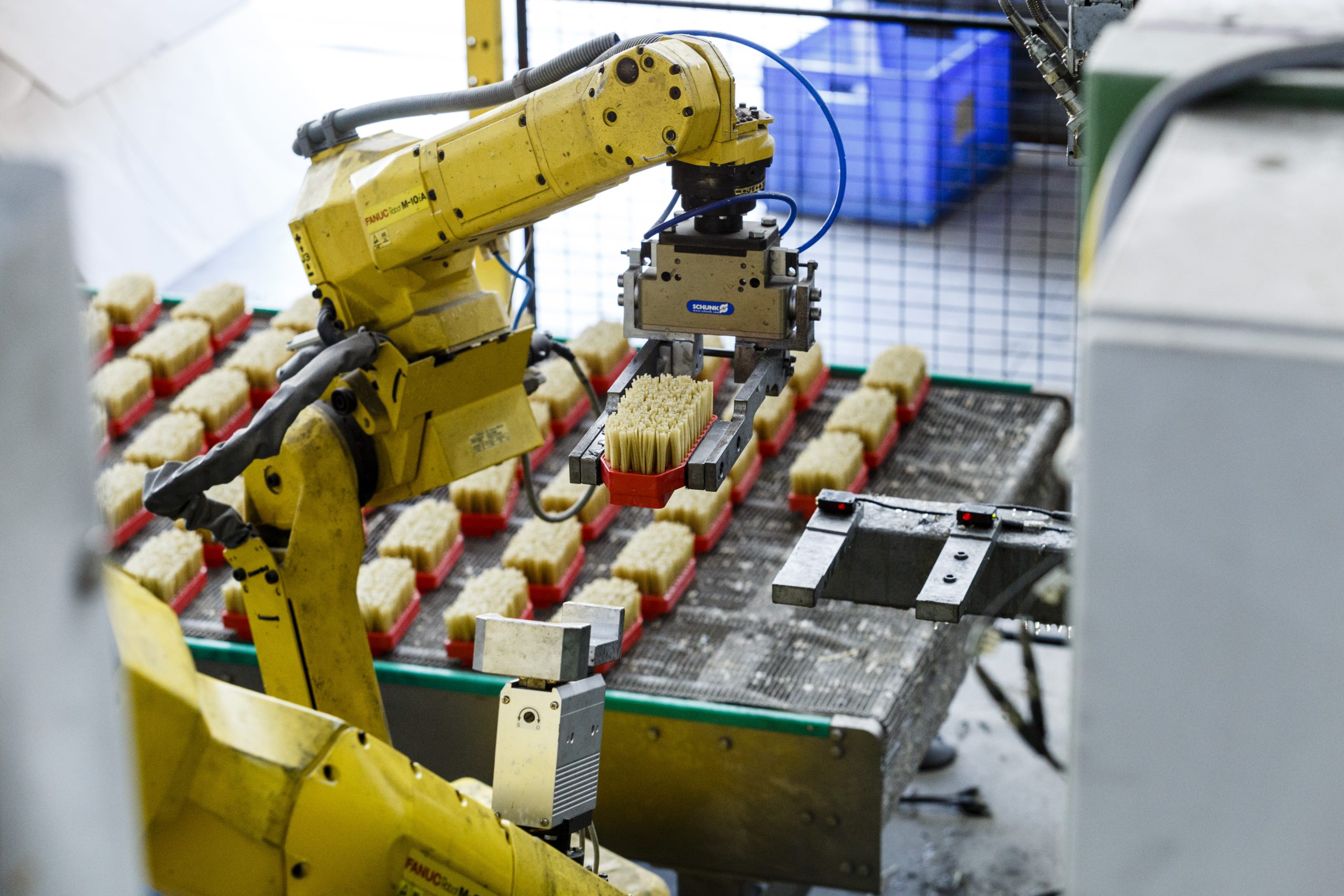In the ever-evolving landscape of technology, Industry 4.0 stands as a transformative force poised to revolutionize the manufacturing industry. With the integration of cutting-edge technologies such as artificial intelligence, the Internet of Things (IoT), and data analytics, Industry 4.0 is reshaping the way products are created, manufactured, and delivered. In this blog article, we explore the concept of Industry 4.0, its impact on manufacturing, and the opportunities it presents for businesses.

Industry 4.0: The Next Phase of Manufacturing Innovation
In recent years, the term “Industry 4.0” has gained significant attention across various industries. But what exactly is Industry 4.0? Industry 4.0, also known as the Fourth Industrial Revolution, refers to the integration of advanced technologies into the manufacturing sector, creating a new era of digitalization and automation. It represents a paradigm shift that combines cyber-physical systems, the Internet of Things (IoT), artificial intelligence (AI), and data analytics to transform the way we produce and consume goods.
The Concept of Industry 4.0:
Industry 4.0 builds upon the foundations of the previous industrial revolutions, each of which introduced significant advancements:
- The First Industrial Revolution (Late 18th Century): This period marked the introduction of mechanization, powered by steam engines and the development of manufacturing processes.
- The Second Industrial Revolution (Late 19th Century): The advent of electricity, assembly lines, and mass production techniques brought forth the era of mass manufacturing.
- The Third Industrial Revolution (Late 20th Century): The rise of computers and automation technologies revolutionized manufacturing with the use of electronics and information technology.
Industry 4.0, the latest phase, is characterized by the fusion of physical and digital systems. It encompasses the following key technologies:
- Cyber-Physical Systems (CPS): CPS refers to the integration of physical machinery and digital technologies, enabling real-time communication, data exchange, and control. This integration allows physical systems to be monitored, analyzed, and optimized through digital means, leading to increased efficiency and productivity.
- Internet of Things (IoT): IoT refers to the network of interconnected devices, sensors, and machines that can collect and exchange data. By connecting physical objects and enabling them to communicate, IoT enables the automation of processes, improved decision-making, and the generation of actionable insights.
- Artificial Intelligence (AI): AI involves the development of intelligent machines capable of learning, reasoning, and problem-solving. By leveraging AI algorithms, machines can perform complex tasks, make autonomous decisions, and optimize processes, leading to improved efficiency, accuracy, and predictive capabilities.
- Data Analytics: Data analytics involves the collection, processing, and analysis of large volumes of data to extract valuable insights. By utilizing advanced analytics techniques, businesses can identify patterns, trends, and anomalies, enabling data-driven decision-making and process optimization.
The Impact of Industry 4.0:
Industry 4.0 holds immense potential to transform manufacturing across various dimensions:
- Smart Factories: Industry 4.0 paves the way for the creation of smart factories, where machines, equipment, and systems are interconnected and communicate with each other in real time. This connectivity enables intelligent production processes, predictive maintenance, and agile responses to changes in demand.
- Digital Twin: A digital twin is a virtual replica of a physical asset, process, or system. By creating digital twins, manufacturers can simulate and optimize production processes, test new ideas, and identify potential bottlenecks or inefficiencies before implementing changes in the physical environment.
- Improved Efficiency and Productivity: Industry 4.0 technologies enable automation, streamlined workflows, and real-time data analysis, resulting in enhanced efficiency and productivity. By automating repetitive tasks and optimizing processes, manufacturers can reduce costs, increase output, and deliver products faster to the market.
- Enhanced Customization: With Industry 4.0, mass customization becomes a reality. By leveraging advanced technologies like AI and data analytics, manufacturers can tailor products to meet individual customer preferences, enabling greater personalization and customer satisfaction.
- Supply Chain Optimization: Industry 4.0 enables end-to-end visibility and optimization of the supply chain. With real-time data exchange and analytics, manufacturers
Benefits of Industry 4.0 for Manufacturing:
Industry 4.0 brings the following benefits to manufactuing:
- Improved Operational Efficiency:
- Automation of repetitive tasks and streamlined processes.
- Enhanced production speed and reduced costs.
- Optimized resource utilization for sustainable operations.
- Enhanced Product Quality and Customization:
- Real-time monitoring and quality control for defect detection.
- Personalized and customized products to meet individual customer needs.
- Faster response to market demands and shorter production cycles.
- Agile Supply Chains and Just-in-Time Manufacturing:
- Real-time data exchange for improved supply chain visibility.
- Efficient inventory management and reduced lead times.
- Seamless coordination between suppliers, manufacturers, and customers.
- Enhanced Sustainability and Environmental Responsibility:
- Energy-efficient manufacturing processes.
- Waste reduction and recycling initiatives.
- Lower carbon footprint and environmental impact.
Challenges and Considerations of Industry4.0:
Industry4.0 can bring the following challenges:
- Workforce Transformation:
- Upskilling and reskilling employees to adapt to new technologies.
- Addressing concerns about job displacement through training and reemployment initiatives.
- Nurturing a culture of innovation and continuous learning.
- Data Security and Privacy:
- Protecting sensitive information and intellectual property.
- Implementing robust cybersecurity measures and protocols.
- Ensuring compliance with data protection regulations.
- Infrastructure Upgrades and Integration:
- Evaluating and upgrading existing systems to support Industry 4.0 technologies.
- Ensuring interoperability and compatibility among different systems and devices.
- Collaborating with technology providers and experts for seamless integration.
Cepicat and industry 4.0
Industry 4.0 is more than just a buzzword; it represents a fundamental shift in how we approach manufacturing. By embracing the power of advanced technologies and data-driven decision-making, businesses can unlock new opportunities for growth, efficiency, and innovation.
However, successfully navigating the challenges of Industry 4.0 requires a strategic mindset, investment in talent and infrastructure, and a commitment to ongoing learning and adaptation. As we embark on this new era, the future of manufacturing
CEPICAT is an Industry 4.0 company, robotizing all our manufacturing processes and expanding our big data processes. We have achieved a high degree of efficiency that allows us to compete in the global marketplace




